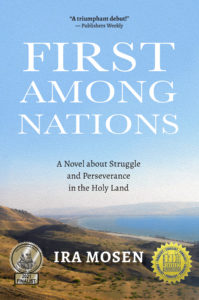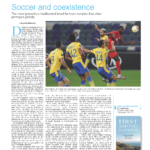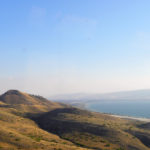As a Jewish doctor with lots of Jewish patients, a question I am frequently asked is “should I fast on Yom Kippur?” Today, I experienced a Middle Eastern variation of this theme. Allow me to explain.
A new patient, an elderly Muslim woman, came to my office today accompanied by her son. They live in a neighborhood in East Jerusalem where I would not feel comfortable walking – or even driving. She spoke in Arabic, with her bilingual son translating into Hebrew.
She was referred to me because of a decline in kidney function that started at the beginning of June. I asked her what changes took place just before June. Any new medications? Procedures? Illnesses? She denied all of the above. Further questioning revealed that Ramadan – which follows the lunar calendar – started this year at the end of May. I reviewed her medications which included two diuretics (water pills) which she had continued taking throughout Ramadan. And she affirmed that she had felt particularly lightheaded, dizzy and weak during the whole month.
My conclusion was that she became dehydrated during Ramadan, due to a combination of fasting and diuretic medications. I counseled her to make sure to drink an adequate amount of fluids, even during Ramadan (at night, when she is allowed to eat and drink). And I advised her to not take her diuretic medicines during that month.
I care a great deal about my patients, regardless of their race, religion, or the color of their skin. And I think that my patients recognize and appreciate this concern. My salary is paid by the health clinic so I don’t ask my patients for anything in return. But I hope that through my work I can spread a culture of tolerance and coexistence. I know that I can’t change the whole world, but I will certainly keep on trying.
 For more unexpected stories about life in Israel, read Ira Mosen’s debut novel, First Among Nations. It is now available on Amazon.
For more unexpected stories about life in Israel, read Ira Mosen’s debut novel, First Among Nations. It is now available on Amazon.





Leave a Reply